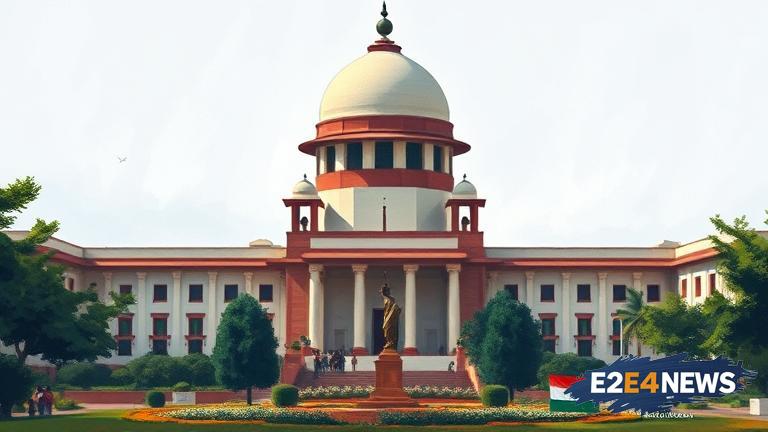India’s Supreme Court has agreed to hear a batch of petitions challenging the government’s decision to revoke the special status of Jammu and Kashmir. The court will review the constitutional validity of the government’s move to abrogate Article 370, which granted the state a degree of autonomy. The petitions, filed by various individuals and organizations, argue that the government’s decision is unconstitutional and violates the rights of the people of Kashmir. The court’s decision to hear the petitions has been seen as a significant development in the ongoing crisis in Kashmir. The government’s move to revoke the special status of Kashmir has been widely criticized, with many arguing that it is an attack on the state’s autonomy and the rights of its people. The Supreme Court’s decision to hear the petitions has been welcomed by many, who see it as an opportunity for the court to review the government’s decision and ensure that the rights of the people of Kashmir are protected. The court is expected to hear the petitions in the coming weeks, and its decision is likely to have significant implications for the future of Kashmir. The government’s decision to revoke the special status of Kashmir has been justified on the grounds of national security and the need to integrate the state with the rest of India. However, many argue that the decision is motivated by a desire to change the demographic makeup of the state and undermine the rights of its Muslim-majority population. The crisis in Kashmir has been ongoing for decades, with the state experiencing periods of violence and unrest. The government’s decision to revoke the special status of Kashmir has been seen as a major escalation of the crisis, and has led to widespread protests and condemnation. The international community has also expressed concern over the situation in Kashmir, with many calling for calm and restraint. The United Nations has urged India and Pakistan to exercise restraint and engage in dialogue to resolve the issue. The situation in Kashmir remains tense, with the state under lockdown and a heavy security presence. The government has imposed strict restrictions on movement and communication, and many have been arrested or detained. The economic impact of the crisis has also been significant, with trade and commerce severely affected. The people of Kashmir are facing significant hardship, with many struggling to access basic necessities like food and medicine. The humanitarian situation in Kashmir is dire, and there are concerns about the long-term impact of the crisis on the state’s economy and society. The Supreme Court’s decision to hear the petitions is seen as a crucial step in addressing the crisis and ensuring that the rights of the people of Kashmir are protected. The court’s decision is likely to have significant implications for the future of Kashmir, and will be closely watched by the international community. The government’s decision to revoke the special status of Kashmir has been widely criticized, and the Supreme Court’s decision to hear the petitions has been seen as a major setback for the government. The court’s decision is expected to be a significant test of the government’s commitment to the rule of law and the protection of human rights. The people of Kashmir are eagerly awaiting the court’s decision, and are hoping that it will bring an end to the ongoing crisis and ensure that their rights are protected. The international community is also watching the situation closely, and is urging the government to respect the rights of the people of Kashmir and engage in dialogue to resolve the issue.





